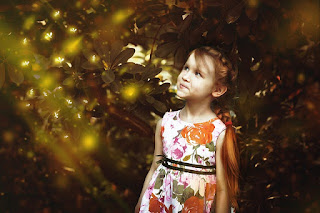As our then-two-year-old became increasingly observant, we were suddenly no longer been able to hide in a world where we didn't have to talk about race or other obvious physical differences between people. Living in a diverse city, taking public transit, and seeing people with all sorts of appearance, abilities, and cultures made the issue quickly a topic of everyday conversation (and occasional embarrassment on the train).
Because our children are still very young, and because we have the privilege of being able to choose at times not think about race (i.e., we are white), this is an issue where we are very far from experts. Luckily though, I grew up with someone who has spent a lot of time thinking about these issues professionally. For that reason, I would like to take this post to highlight some of the great resources at We Stories.
Note: We Stories's primary activities are focused on a) the St. Louis area and b) figuring out how to make race something that white families think and talk about. That said, the resources, posts, and other materials linked to by them are appropriate across geographic areas and many are intended for audiences of any race or background.
Consider this post mostly a round-up of links with commentary by me.
Why talk about race at all? Aren't kids color-blind?
Post: It turns out they're not, even (in fact, especially) if we never talk about race.
You can also read more about this in NurtureShock - a book we discussed in a post of our own: Some Stuff Science Says about Parenting.Just thinking about how to do this is terrifying.
Post: Where to Start: 12 Small Steps for White Families who Want to be a Positive Force for Change on Racism
While I like all of their suggestions (really, go read that link), numbers 7-9 on their list about diversifying your bookshelf and mixing up your media really stuck with me as it’s something I’ve confronted over the last year. I know I was startled when I realized just how few black (and other) voices I was hearing - let alone my children - without ever having consciously chosen one way or the other.Side note: Thanks to the past year’s changes at Comedy Central, we’ve all had the opportunity to experience some new perspectives about the news. Much as I loved Jon Stewart and Stephen Colbert, the cast of the Daily and Nightly Shows have brought to the fore voices and experiences otherwise lacking in much mainstream media. (see Roy Wood Jr., especially at the 2:50 mark for a moving example).
 This whole book thing seems doable. What should I get?
This whole book thing seems doable. What should I get?
Post: How to use Children's Books to Talk to Kids about Racism
One day our daughter came home from school talking about pink and brown people. The next day, she assumed (loudly and in public) that a black man busking at Park Street was the same black man on our Green Line train. We knew books would be our first attempt at discussing the topic. From We Stories, we saw recommendations for The Skin you Live In and We're Different, We're the Same and our daughter has loved them both.Side note: The latter book is a Sesame Street book from the 90s, which means it
- a) has someone with a flattop,
- b) has characters that are no longer on the show (looking at you Barclay),
- c) does not have new characters (Abby), and
- d) is pretty awesome all around.
 Any other posts I should be sure to check out?
Any other posts I should be sure to check out?
Post: What they See. What we say, and don't
That post is a bit of a manifesto for We Stories and helps me understand their mission and how we’ll take their lessons and apply them at home. The stories we tell our children and the stories we tell ourselves matter. Many of us chose urban, vibrant environments for our families in order to engage with diversity. But that choice (or even frequent trips to the Korean grocery market) can't be the end of our story. For our family, it's something we spend a lot of time thinking about, and increasingly, it's something we're spending more time talking about. It is also one (of many) topics that came up in my appearance on the recent TransitMatters podcast.These guys seem great! How can I find out more? How can I help them?
For readers on the East Coast: St. Louis? Didn't they lose to the Sox a lot recently?
Fear not, childhood friend and co-founder Laura Horwitz has spent significant time in Boston, NYC, and Philly.















Follow Us
As busy parents, we're not huge social media types, but we do have some stuff going on...